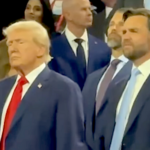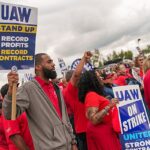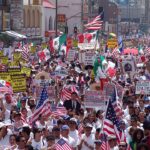Malik Miah
Posted January 14, 2025

Why? Is it good for steelworkers? Are foreign capitalists worse than American bosses? Should workers care?
Japan’s Nippon Steel is the world’s fourth largest steelmaker. U.S. Steel is ranked twenty-three and only number three in the United States. Most financial observers thought it was a good deal for the industry, given the financial troubles of U.S. Steel.
Japan and its rulers, furthermore, are a major U.S. ally in Asia, including military threats against China. Japan supports Washington and Tel Aviv’s genocidal war in Gaza and U.S. sanctions and threats against Russia.
U.S. Steel and Nippon Steel filed a lawsuit to support their deal. The suit says that the government’s process was driven by domestic politics, not national security concerns.
President Biden killed the deal because of his alleged claim of “national security.” U.S. Steel should be owned only by Americans, he says. It is a national asset and necessary for country’s infrastructure and war machine.
The officials of the United Steelworkers of America praised Biden’s decision even though it could lead to more job losses.
It is a strange to say that a foreign company from a strategic ally — Japan — could be a national security threat. Japanese and European companies already invest in many basic industries in the United States.
Japan Prime Minister Shigeru Ishiba asked U.S. President Joe Biden to allay concerns in the Japanese and U.S. business communities over his decision.
President Biden has always been a cold warrior and promoter of “America First” policies. As a senator, he supported President George W. Bush invasion of Afghanistan and Iraq and his “war on terror.”
Returning president Donald Trump has similar views with his “Make America Great Again” slogan.
The ruling class and its two major parties, Democrats and Republicans, agree on expanding U.S. imperialist domination. The rhetoric and tactics may vary.
Biden’s decision to stop the buyout is consistent with his own tariffs and sanctions against “enemies “ like China and Russia.
Who wins? The political elites who oppose globalism of any kind of economic bilateralism that doesn’t give superior position to the United States. It’s why Trump is promoting across the board tariffs against allies including Canada and Mexico.
Who suffers? The working class. There is a continuity between Biden and Trump.
So, what explains the United Steelworkers of America (USWA) support of Biden’s anti-Nippon decision? The officials know U.S. Steel is in financial trouble and likely decline with its own members jobs and benefits at stake.
The officialdom said in a press release afterwards:
(PITTSBURGH) –United Steelworkers (USW) International President David McCall today issued the following statement in response to President Joe Biden blocking the proposed U.S. Steel-Nippon sale:
“The USW welcomes President Biden’s decision to block the U.S. Steel-Nippon deal. We have no doubt that it is the right move for our members and our national security.
“Throughout the past year, as the proposed transaction was under review, our union’s first and only concern has been the long-term viability of our facilities as we look to ensure a strong domestic steel industry well into the future.”
Many workers don’t see it that way since U.S. Steel owners have downsized. Jobs have been lost, with more lost without the deal.
Under labor law, change of ownership does not abrogate existing contracts. Nippon would have had to recognize the union.
Biden and Trump both want more manufacturing inside the United States. Keeping out foreign capital and raising tariffs on countries causes more inflation and hardships. But it can force allies and others to bend to Washington’s policies.
This is why Nippon Steel’s proposal was denied. It had nothing to do with “national security.” It was a power play.
The union officials see themselves as “America First” not trade unionists first even if it hurts their own members and the broader working class.
Rank and file steelworkers at U.S. Steel and other basic industries know making “America Great” does not necessarily give them more job security with better wages and benefits.
If in fact there is a need to safeguard basic resources such as steel and oil, the government could simply seize the companies and make them public property.
Nationalization of the steel industry is a better solution to protect resources and jobs, and the unions that represent the workforce.




